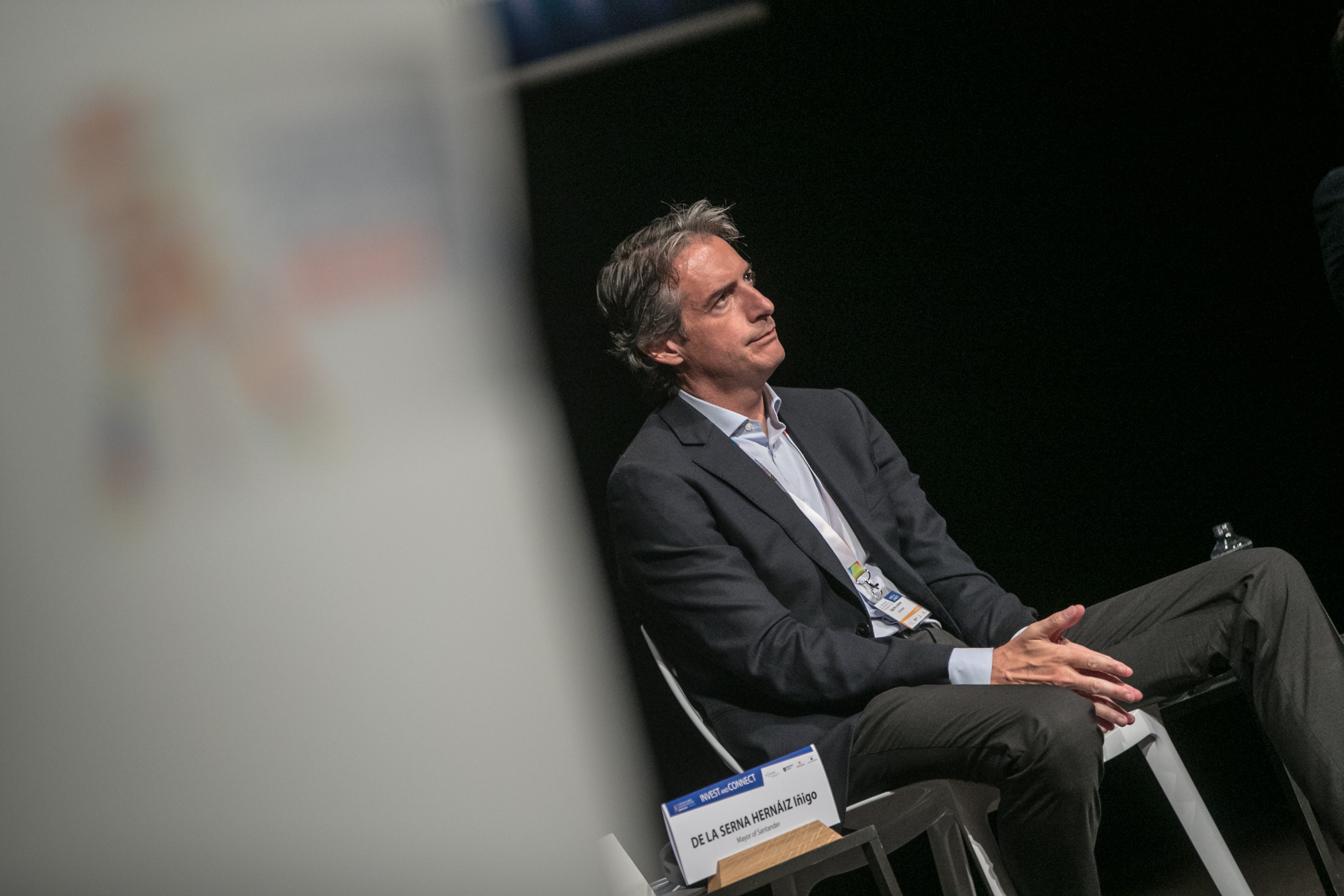
Photo: Screen-Shot-2016-07-12-at-16.04.18
Interview: Mayor of Santander
12 July 2016
by Jonathan Andrews
Jonathan Andrews spoke to Iñigo de la Serna, Mayor of Santander, Spain and President of the Council of European Municipalities and Regions in Bratislava at the 7th European Summit of Regions and Cities
What do you make of the Bratislava declaration that was adopted here at the European Committee of the Regions summit?
This is the best way to share experiences between cities and the best way to tell the European institutions our main concerns and how to solve our problems. Local governments have a major role to develop our smart cities but also to provide Europe with a new ecosystem of innovation. We have to lead the way by being able to share our ideas and develop together in order to be as competitive as possible.
In your panel discussion you said that cities need to share investment costs of smart city solutions. Is that something you are taking up in your role as President of CEMR?
I think the European Commission should lead this process but we have good experiences in Spain doing this [through the Spanish Smart City Network]. We share all these developments, we don’t let our cities go out there to just tell everyone how good they are and how many solutions they have developed. We only want solutions that we can use. It is true that there are different summits where we can show our developments and it is very useful to know what all the cities are doing but there is not a place where we can just bring those solutions to our cities without spending money. I think European institutions should work on it to develop this ecosystem in a faster way.
The summit’s focus here in Bratislava is about connecting cities to investment. What would you like to see change at the European institutional level to help cities better access finance?
Technology provides us with new solutions in order to finance these developments. For example, we are changing all our public lighting in Santander and we don’t need to spend public resources because a private company is going to change all our different lights. The company has to invest more than €11 million and they get the economic return through the saving of energy. So it is a very good example of what a PPP can do in a smart city. We also need the European Commission to provide us with more resources to enable us to provide this type of ecosystem but I think it is very important to open our information and infrastructures to the private sector as most of the time they don’t need the money, just the facilities to develop those solutions.

Santander is renowned as a smart city in Spain, what has been the economic impact of becoming a ‘smart city’?
It’s not easy to get an impact right away. It is easier for energy projects because we know that we are going to save 80 percent of energy, so about €2 million for us. But in other public services the impact is not easy to calculate. We are now working on the waste management system by changing the routes of the rubbish collection trucks, and we think we can get a 20 percent saving for the whole system. This will occur as soon as we manage to create the mathematical algorithm into the syste.. I don’t think we should focus on the short term but to change the way how we provide public services to our citizens in the medium to long term as that will have a tremendous impact.
Santander headquarters one of the largest banks, the city’s namesake, Santander. Is that a help or a hindrance?
Yes, they are supporting us in different projects like the platform Santander City Brain that opens up the city’s information and receives ideas from citizens. Santander bank will also provide 50 percent of the funds for our next startup project where they will work with entrepreneurs and will be able to identify talent in order to use it for their business.
Is the city investing in that too?
Yes, 50 percent will come from European funds and 50 percent from Santander bank but the city is going to invest in the physical location where they will be working which is about €1 million.
As most startups fail is there a risk that some citizens could see this as waste of money?
Yes, they have to fail. Most startups fail. We see what they do in Tel Aviv, they say they fail a lot. We know that, but it is very important to tell our citizens that that is going to happen. That failure should not be seen as a failure of the project. You have to realise that 5 percent of them or less could have great success and in turn big things for the city.







